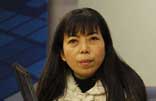Changes in Russia will come from the top
Updated: 2012-03-14 16:06
By Anna Varfolomeeva (chinadaily.com.cn)
|
|||||||||||
Vladimir Putin has always been a fighter who faces up to challenges, which will stand him in good stead, because after winning the presidential elections he will have to find a balance between the stability that is the cornerstone of his political vision and the reforms that Russia urgently needs in many spheres.
Putin is sometimes called the president of hopes, because many Russians believe he will restore the nation's greatness and improve their lives. It was during his first term as president that Russia started to get back its pride and began being respected in the political arena after a long period of instability. The turmoil following the breakup of the Soviet Union was finally left behind and after seemingly being consigned to the fringes of the international arena, the country started being seen as an important power and partner by the leading countries of the world.
Although the opposition is active in big cities like Moscow and Saint Petersburg, accusing the government, of which Putin was prime minister, of a lack of choice and a failure to make any changes for the better, it should be realized that these two cities are not the whole country.
The overall situation in the country has definitely improved and the positive changes can be seen much more clearly in small towns in the provinces, where people have stopped simply surviving and started living.
These small provincial towns are where Putin received the strongest support. It is worth noting that during the presidential elections this year, Putin received 64 percent of the votes, almost identical to the 65 percent that secured him his second term as president in March 2004.
But even Putin has acknowledged that reforms are necessary if Russia is to progress and the quality of people's lives improve. He is well aware that without reforms, Russia will enter a period of stagnation.
Hence the first two years of his presidency are likely to produce some social reforms and reforms aimed at creating a more stable business environment.
However, a liberal economic policy and cautious foreign policy are needed to revitalize Russia. This is the exact opposite of what Putin's main electorate is hoping for.
His reforms are unlikely to be welcomed by the majority of people who voted for him, members of United Russia party, bureaucrats, government enterprises, and state employees.
And although his pre-election articles show he understands the need for serious fundamental changes, his political credo has always been based on stability.
Stability for Putin has always been more important than development and reforms. So it might be hard for him to come up with any real proposals on how to change the existing power structure.
But he has already proved many times that he is a politician who can foresee the consequences of his actions, so it can be expected that prior to the introduction of any potentially unpopular reforms, he will explain why they are needed and what they will achieve.
Certain plans will depend on tendencies in the world economy, where the situation remains uncertain. It is still not clear what is going to happen in Europe and what the price of oil and other raw materials will be. However, the uncertainties in the world economy and the global financial crisis will probably speed up the positive changes in Russia.
At first sight it might look like Putin will become a hostage of the conflicting demands of different groups of people, but the fact that Dmitry Medvedev, the outgoing president, will be prime minister can be seen as a sign that the liberal reforms in the political sphere will be continued.
According to Aleksey Mukhin, the director of the Center of Political Information, the revolution in Russia has already started, but it is a revolution "from above". He said radical reshuffles could be seen in the composition of the executive power structure and the presidential staff, as well as in the regions.
The author is a foreign editor at m4.cn, a Beijing-based news portal.




